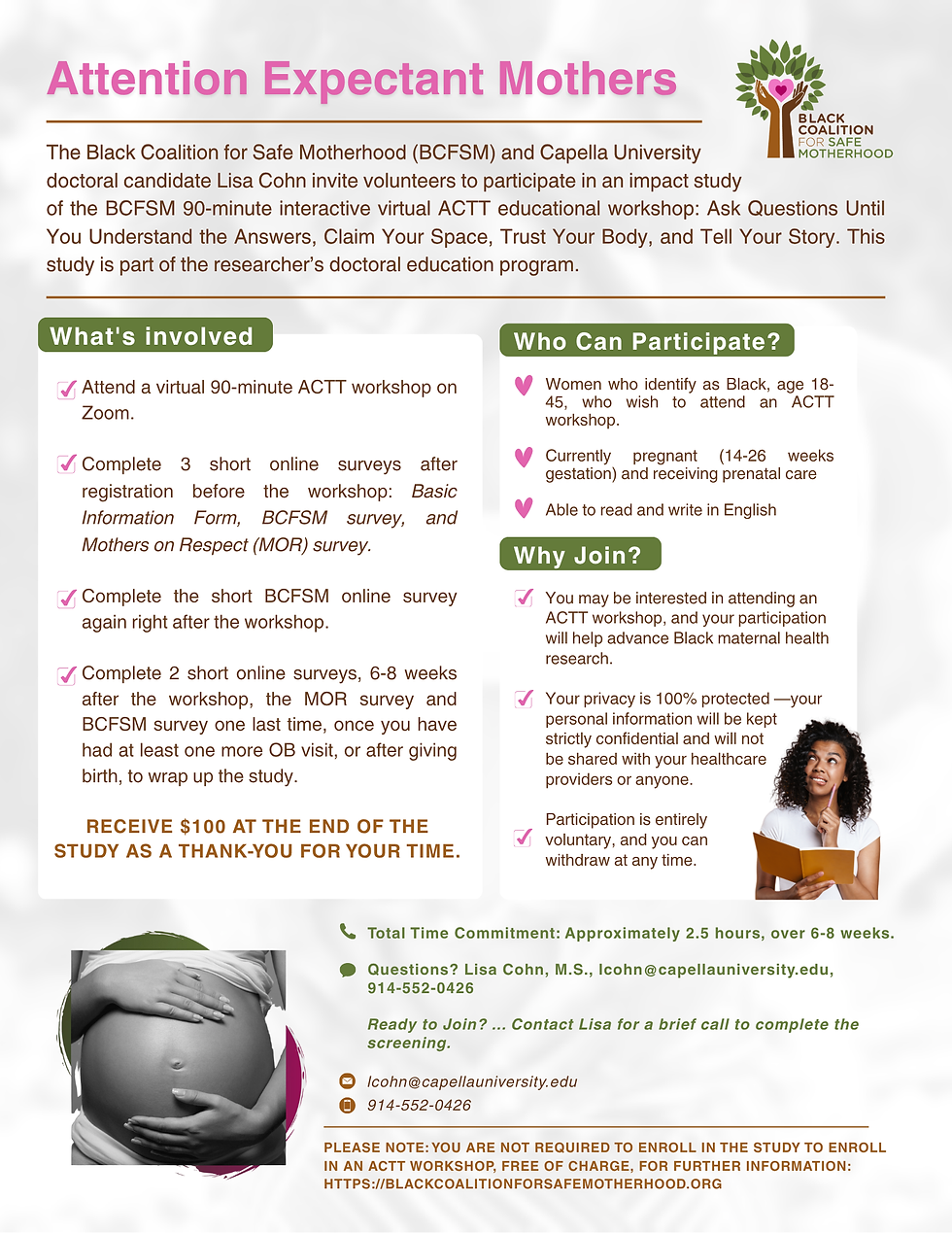Diverse Participation, Real Results: Insights from PEP!IN’s Recent Survey
- Melva

- Jul 22, 2024
- 2 min read
Updated: Dec 2, 2024
What if we empower every clinical study to achieve the perfect balance of participants that reflected real-world health outcomes?”

Well, we just made the first big step with the recent publication in DIA Forum’s July 2024 edition. We presented the results of a survey on patient attitudes toward participation and use of digital technologies in clinical research. Our goal was to collect early insight and feedback from individuals in community-based settings concerning clinical research participation. We believe these insights support our efforts to build strategies, practices, and products to improve recruitment and retention rates of study volunteers, particularly those who have been historically underrepresented in clinical research. Thank you to our DIA Forum colleagues and authors Melva T. Covington (AGAPE Strategic Solutions/PEP!IN), Jeannine Cain (PEP!IN), Cheryl Beal Anderson (ACE Regulatory Affairs), and Tamara R. Allen.
Please connect with us as we engage in collective efforts to build a strong and impactful community for clinical research! We aim to educate, inform, and participate in developing solutions to help all people get to solutions that improve their health and well-being.
Key Study Takeaways:
There is no one-size-fits-all when recruiting and engaging with participants for clinical research; so you have to develop ways to reach as many as possible – even if it is using a convenience survey;
While most of the 124 individuals who participated had never been in a clinical research study, the nearly 20% who did stated that they understood its purpose, and 92% liked the research experience;
However, only 58% of people who were in a clinical study said that they benefited from participating;
Just over 40% of the respondents heard about a clinical trial through a family member or friend, and only 14% heard through a healthcare provider; Only about 5% became aware through social media or digital technology, such as search engines;
Most people said that they would participate in a study if it were convenient to them;
Trust was a big factor! Overall, 86% of total respondents indicated that they were “somewhat or very trusting” of their providers. The number was lower (77%) when asked about the same level of trust in the healthcare system. This response varied by race and ethnicity;
Most respondents said that they were comfortable with using a digital device to participate in a clinical research study, and those who were under 46 years of age were the most comfortable;
And much more!
This was a convenience study from family, friends and colleagues of the PEP!IN team, so the results are not generalizable to the general population. However, it does provide some interesting insights into building an integrated approach to communicating with patients about trials using more trusted avenues and sources. This may also help to build more trusting relationships and consistency with the healthcare system, providers, and patients through transparency, better coordination, and information sharing.
Take a look and tell us what you think. Please share news about PEP!IN with your friends and family as we build this community!
Melva Covington, MPH, MBA, PhD
Co-Founder and Managing Director
People Empowering People for Inclusion Now, LLC (PEP!IN)
Disclaimer: The content provided on this website is for informational purposes only and is not intended as medical advice or a diagnosis, For more, read our full disclaimer.



Comments